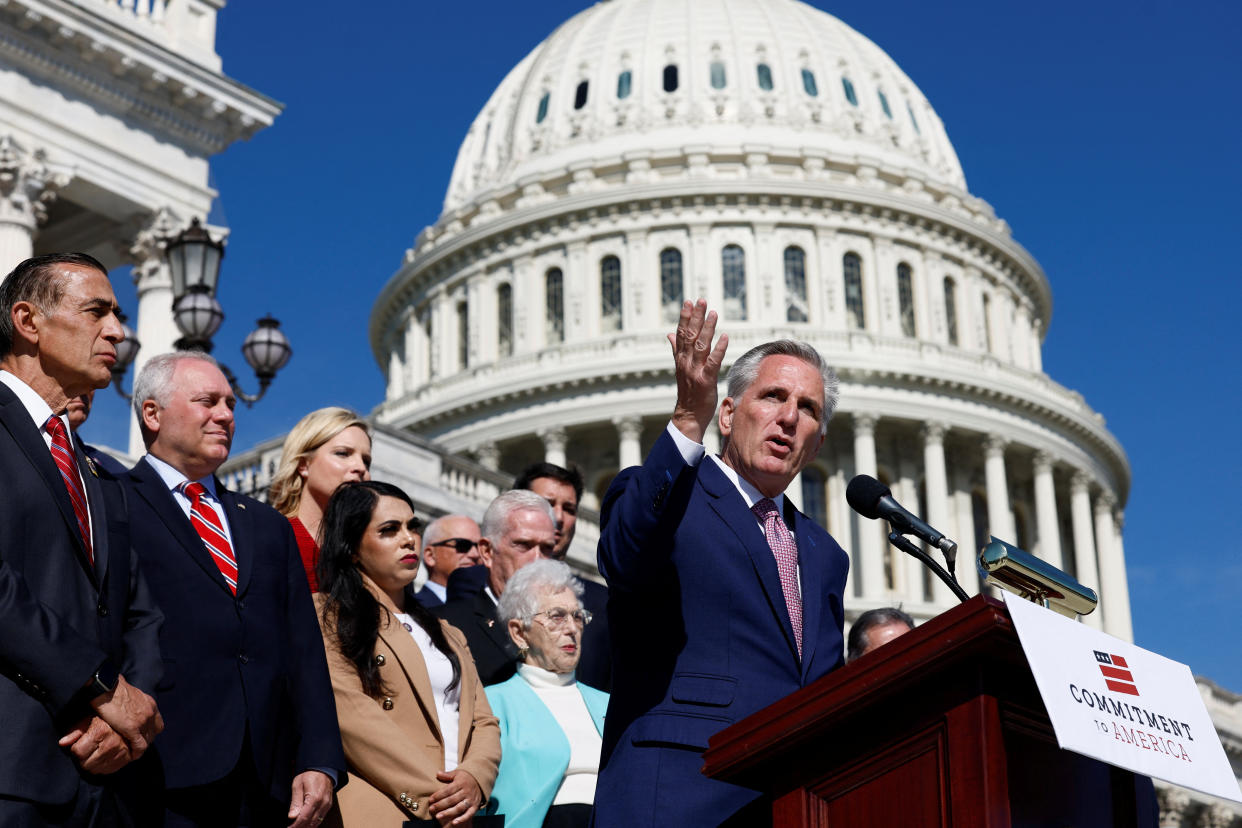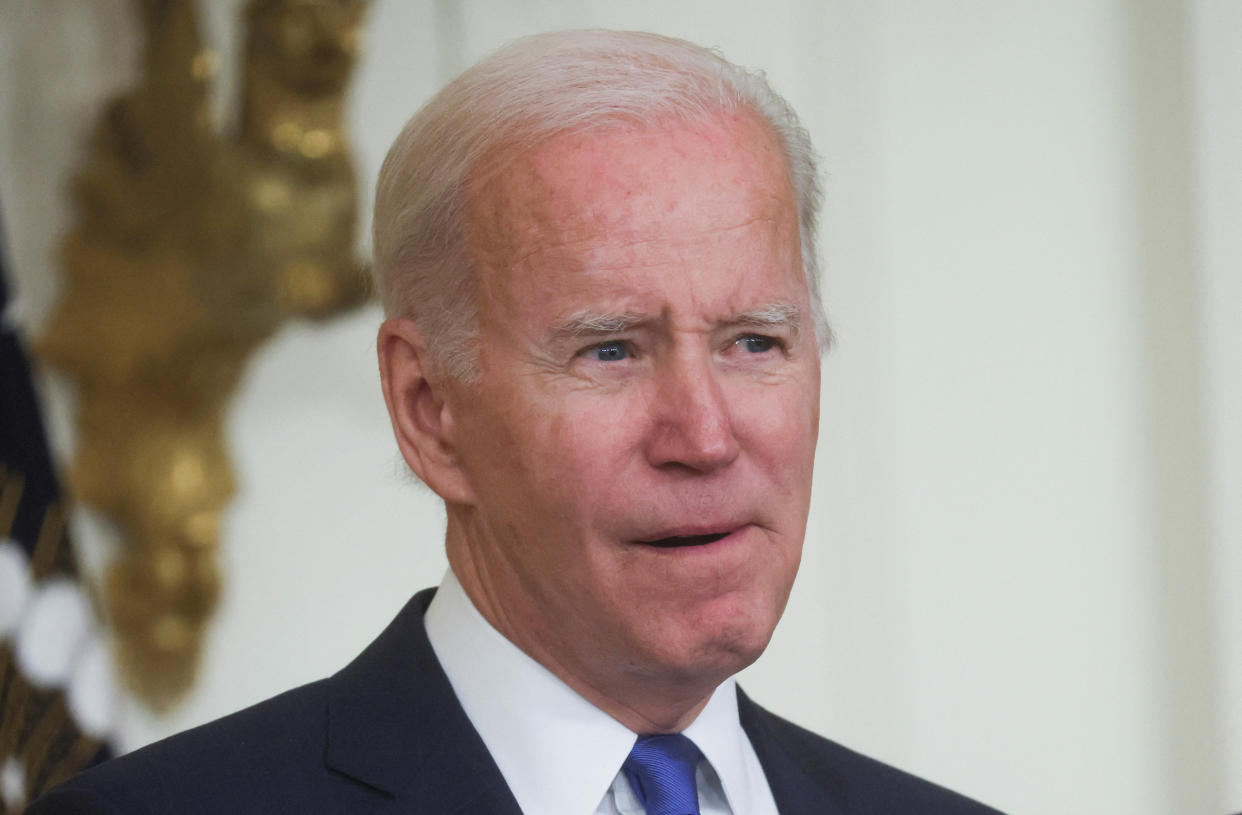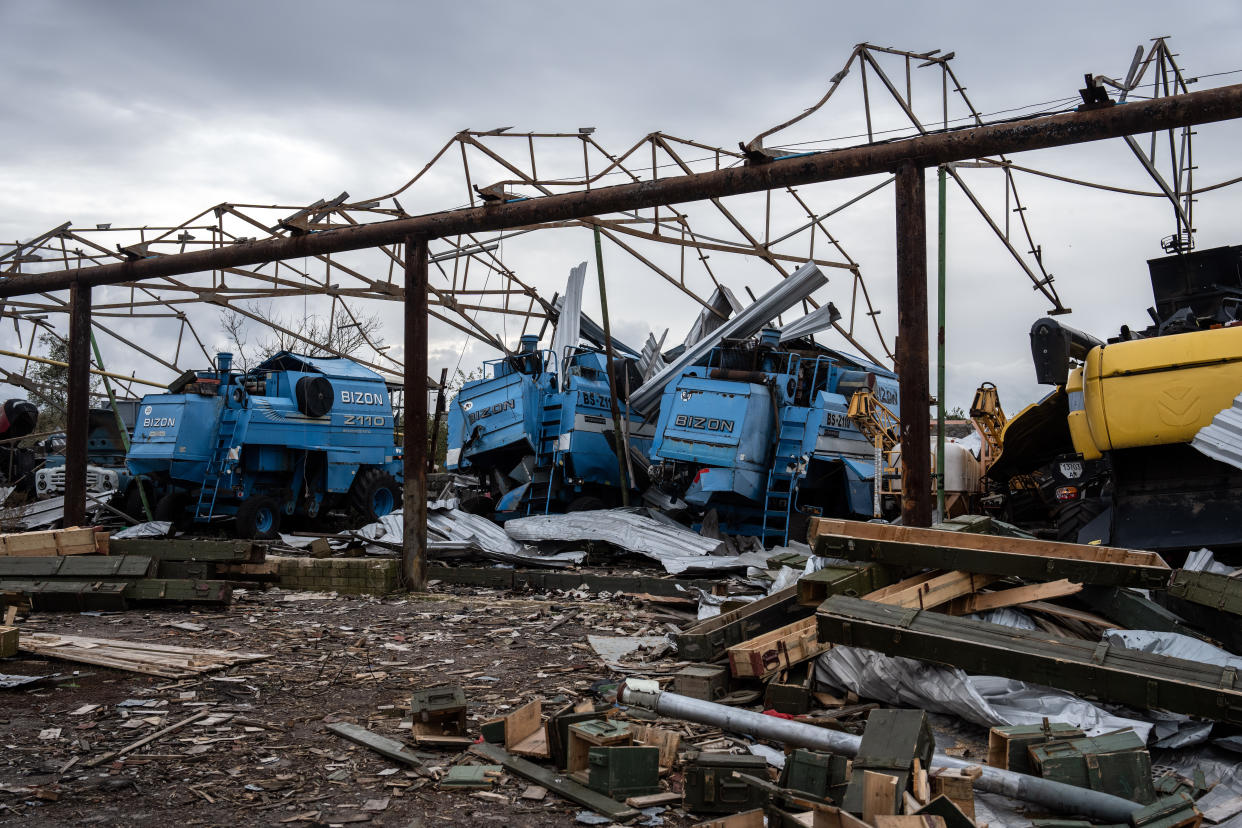How U.S. policy toward Ukraine could change if Republicans retake control of Congress
Should Republicans retake control of one or both houses of Congress in the midterm elections, the implications for U.S. foreign policy in Ukraine could be profound.
On Oct. 18, just weeks after the U.S. announced it was sending another $1.1 billion in military funding to Ukraine, House Minority Leader Kevin McCarthy made clear that a Republican majority in either chamber would signal possible changes to future payments.
“I think people are going to be sitting in a recession and they’re not going to write a blank check to Ukraine,” McCarthy told Punchbowl News. “They just won’t do it. ... It’s not a free blank check.”
Other Republicans have been outspoken in their view that the U.S. needs to halt military aid to Ukraine, with Rep. Marjorie Taylor Greene characterizing such funding as a “money-laundering scheme.” She and other far-right lawmakers have insisted that America faces more urgent priorities, such as securing the U.S.-Mexico border.
According to Politico, Biden aides anticipate funds to Kyiv to keep flowing, though perhaps on a smaller scale. This uncertainty is one reason why lawmakers have reportedly been considering the passage of a new aid package in the lame-duck session of Congress that would make the most recent $12 billion in aid approved in September look like “pocket change,” as an unnamed Republican senator told NBC News.
An estimate of U.S. aid to Ukraine from the Kiel Institute for the World Economy stood at $52 billion dollars as of Oct. 11, including more than $27 billion in military aid and close to $25 billion in humanitarian and economic aid. On Oct. 28, the Biden administration committed another $275 million in military aid to Kyiv.

Several experts who spoke to Yahoo News said that aid to Ukraine would not change significantly should Republicans take control of the purse strings, though some admitted that nonmilitary funding could take a hit.
“Both parties have a strong majority that favors support for Ukraine,” said Stephen Sestanovich, the George F. Kennan senior fellow for Russian and Eurasian Studies at the Council on Foreign Relations. “There may be a greater pretense of oversight and greater scrutiny of the mix of aid that Ukraine receives,” he added. “But major change? Don’t count on it.”
Jon Lieber, managing director for the U.S. at the Eurasia Group, a political risk consultancy, offered a similar perspective, saying that McCarthy’s statement has been widely misinterpreted in the media. “It’s worlds away from saying that they won’t get any check.”
The bottom line for Lieber is that Congress will have more members “who are openly skeptical of the U.S. making a broad, open-ended commitment to defending Ukraine.” But this seems unlikely to spur a collapse in support for Ukraine.
“They will be effective in forcing more oversight, putting conditions on the aid, and demanding an endgame strategy from the administration,” Lieber said, “but they will not be effective in stopping the U.S. from supporting Ukraine.”
A Reuters/Ipsos poll published on Oct. 5 showed that 73% of Americans favor continuing to provide funding for Ukraine. But that support appears to be slipping among Republicans. A Pew Research survey in September found that 32% of Republican voters said the U.S. is providing too much aid to Kyiv, 23 points higher than when the same question was asked in March.
While GOP support for funding Ukraine’s government appears to be softening among some members of Congress, Senate Minority Leader Mitch McConnell has been steadfast in his support of Kyiv.

“The vast majority of us, certainly including myself, think defeating the Russians in Ukraine is high priority,” McConnell told DefenseNews in a mid-September interview.
The midterms could usher in a new crop of isolationist Republicans, however, such as J.D. Vance, the GOP nominee for Senate in Ohio.
“I think we’re at the point where we’ve given enough money in Ukraine,” Vance said in a recent interview. “We cannot fund a long-term military conflict that I think ultimately has diminishing returns for our own country.”
Yet if Ukraine continues to see military gains on the ground against Russia, that reluctance might become a trickier political position.
“If Ukraine loses ground to the Russians, you’ll see congressional Republicans demanding that the administration do more,” Sestanovich noted. “You may even see increased support.”
Mark Cancian, a senior adviser at the Center for Strategic and International Studies, insisted that military aid was unlikely to change markedly. “I don’t see a more aggressive or larger effort,” he said. “I don’t think they are going to be able to shave it too much either.”
“Given that this populist group on the right is going to be larger and perhaps part of the majority, I think it would be hard to expand military aid,” Cancian added. “The one place where aid is vulnerable is not the military aid but the economic aid.”
Ukrainian officials have reportedly been insisting to Republicans in Washington that aid must continue to go beyond military assistance to include economic support. The country faces numerous financial challenges, from paying for its war effort amid vastly reduced economic activity to rebuilding critical infrastructure.

On Monday, Russia pounded Ukraine’s electrical grid and water supply through dozens of targeted missile strikes that left many without electricity or water.
“In terms of the infrastructure, by virtue of the electrical grid being impacted, we are seeing impacts in terms of water supply systems, water treatment, things like that, which is affecting access to water among the civilian population,” a senior Pentagon official told reporters on Monday.
The strikes epitomize Russia’s war effort in Ukraine, which has included sustained efforts against military and civilian targets. For Ukrainians, that makes economic support an indispensable part of the aid mix.
Speaking with Ukrainian President Volodymyr Zelensky at a virtual Yale forum on Oct. 28, Sen. Lindsay Graham reassured that Republican support of the war effort was steadfast. “Things are going to work out,” he said, predicting “a robust package of military and economic assistance” in the near future.
A new crop of Republican politicians view Graham and McConnell as neocons whose foreign policy ideas are outdated. How that divergence of opinion on funding Ukraine’s war effort could play out should the party retake control of Congress remains to be seen.
“To my Republican colleagues who don’t want a blank check: That’s fine, I’ll be glad to sit down with you to make sure the money goes where it should go,” Graham said at the Yale forum. “But I promise you the majority of Republican senators [is] fully committed to seeing this through.”
